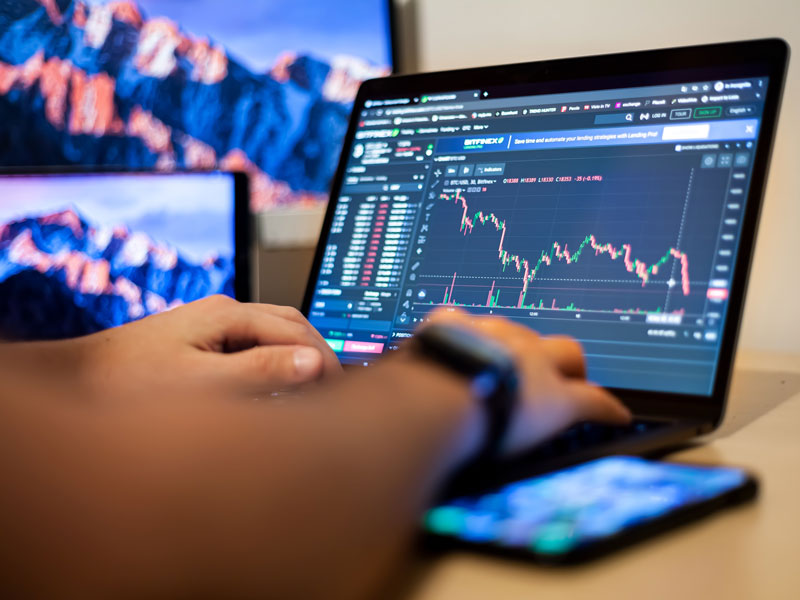
Welcome to Your Forex Trading School
Embarking on a journey into the world of Forex trading can be both exciting and daunting. Unlike traditional stock trading, Forex trading involves vast amounts of currency exchanges, offering numerous opportunities for profit. However, it also comes with its own set of risks. To navigate this dynamic market successfully, many aspiring traders choose to enroll in a Forex trading school. This guide provides an overview of what to expect from a Forex trading school and how to make the most of your educational experience. Join us as we delve deeper into the realm of currency trading. For quality resources, check out forex trading school LATAM Trading Brokers.
Understanding Forex Trading
Forex trading involves buying and selling currency pairs on the foreign exchange market. It is one of the largest financial markets in the world, with a daily trading volume exceeding $6 trillion. The Forex market operates 24 hours a day, five days a week, enabling traders from around the globe to engage in currency trading at any time.
What is a Forex Trading School?
A Forex trading school is an institution or program dedicated to teaching individuals the skills and strategies needed to succeed in Forex trading. These schools may offer various courses, covering topics such as market analysis, trading strategies, risk management, and trading psychology.
Benefits of Enrolling in a Forex Trading School
1. Structured Learning Environment
Forex trading schools provide a structured learning experience that can be more beneficial than self-study. Lessons are typically organized in a way that builds upon prior knowledge, making complex concepts easier to grasp.
2. Expert Guidance
Many Forex trading schools are staffed by experienced traders who have navigated the market successfully. Their insights can provide invaluable tips and strategies that are not available through books or online resources.
3. Networking Opportunities
Enrolling in a Forex trading school enables you to connect with like-minded individuals. Networking can foster relationships with other traders and potential mentors, enhancing your learning experience.
4. Access to Resources
Students at Forex trading schools often gain access to exclusive resources, such as proprietary trading platforms, analysis tools, and educational materials that can aid their trading journey.
What to Look for in a Forex Trading School

When choosing a Forex trading school, consider the following factors:
- Curriculum: Ensure the school offers a comprehensive curriculum that covers all aspects of Forex trading.
- Reputation: Research the school’s reputation through reviews and testimonials from former students.
- Qualified Instructors: Instructors should have proven experience in Forex trading and a track record of success.
- Flexibility: Look for schools that offer flexible learning options, such as online courses or evening classes.
- Cost: Compare the costs of different schools and ensure that the investment aligns with the value you expect to gain.
Types of Courses Offered
Forex trading schools may offer various types of courses, including:
- Beginner Courses: Designed for those new to Forex trading, these courses cover the basics, including how the market works, essential terminology, and fundamental analysis.
- Advanced Courses: Aimed at traders with some experience, advanced courses focus on technical analysis, complex trading strategies, and in-depth market research.
- Specialized Workshops: Many schools offer workshops focused on specific aspects of Forex trading, such as risk management, trading psychology, or automated trading systems.
- Mentorship Programs: These connect students with experienced traders for one-on-one guidance and personalized feedback.
Building a Trading Plan
One of the crucial lessons you will learn in a Forex trading school is how to develop a solid trading plan. A trading plan is your roadmap to success and should include:
- Your Trading Goals: Define what you hope to achieve, whether it’s generating supplemental income or becoming a full-time trader.
- Risk Management: Outline how much capital you are willing to risk on each trade to protect your investment.
- Market Analysis Techniques: Decide on the methods you’ll use to analyze the market, such as technical analysis or fundamental analysis.
- Trading Strategies: Choose specific trading strategies that align with your goals and risk tolerance.
- Review and Adjustment: Establish a systematic approach to regularly review your trading performance and adjust your plan accordingly.
Challenges Faced in Forex Trading
While Forex trading offers many opportunities, it also presents significant challenges, including:
1. Market Volatility: Currency prices can change rapidly, affecting your trades.
2. Emotional Stress: Trading can be emotionally taxing, particularly during periods of loss.
3. Information Overload: The sheer volume of market data can be overwhelming for new traders.
4. Risk of Loss: There is always the risk of losing money in trading, which makes risk management crucial.
Conclusion
Enrolling in a Forex trading school can be a worthwhile investment for those serious about becoming successful traders. With structured learning, expert guidance, and valuable resources, these schools can equip you with the skills and knowledge necessary to navigate the complexities of the Forex market effectively. Remember, trading is a lifelong learning journey, and your education doesn’t stop after completing a course. Stay engaged with the market, continuously improve your skills, and adapt to changing market conditions to achieve your trading goals.
Get Started Today!
If you’re eager to dive into the world of Forex trading, take the first step by researching Forex trading schools today! Whether you choose a course or pursue self-study, remember that the key to success lies in education, practice, and perseverance.
